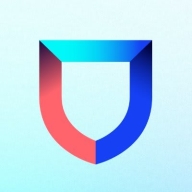


Prisma Cloud by Palo Alto Networks and Lacework FortiCNAPP compete in cloud security. Prisma Cloud seems to have the upper hand due to its broader feature set and comprehensive deployment capabilities.
Features: Prisma Cloud provides dynamic workload identity creation, integration with AWS, and strong cryptographic identities. It includes automated forensics and security monitoring, scanning for vulnerabilities, and managing cloud compliance, particularly excelling in multi-cloud environments. Lacework FortiCNAPP focuses on anomaly detection and compliance, offers cloud configuration compliance scanning, and integrates with Slack, prioritizing alert management over active remediation.
Room for Improvement: Prisma Cloud users desire better documentation, clarity in security checks, and pricing transparency. Interface navigation and fragmented features pose challenges. Improvements in automated response capabilities and API security focus are needed. Lacework FortiCNAPP users seek enhanced remediation features and clearer alert configurations. Its integration with third-party systems and alert granularity require improvement, alongside addressing the lack of FedRAMP authorization and slow AWS instance scanning.
Ease of Deployment and Customer Service: Prisma Cloud supports deployment in hybrid and multi-cloud setups with integration flexibility but has inconsistent technical support quality across regions. Lacework FortiCNAPP is primarily used in public and private cloud environments, offering reliable, user-friendly customer support, though customization options are less extensive than Prisma.
Pricing and ROI: Prisma Cloud's pricing is high but seen as justified due to its feature set and ROI through improved security and reduced alert times. The licensing process is complex, and future cost prediction is challenging. Lacework FortiCNAPP's pricing is considered slightly costly but more stable, with noted improvements in value over time. However, it lacks full pricing transparency.
The detailed information PingSafe gives about how to fix vulnerabilities reduces the time spent on remediation by about 70 to 80 percent.
After implementing SentinelOne, it takes about five to seven minutes.
Cloud Native Security does offer ROI.
It eliminates the need for additional hardware, making it a financially and technically sound investment.
Reputation and data security are the two most important things to a financial institution.
We may have prevented a security breach with remediation of the findings.
When we send an email, they respond quickly and proactively provide solutions.
They took direct responsibility for the system and could solve queries quickly.
Having a reliable team ready and willing to assist with any issues is essential.
Technical support from Fortinet is good; I get feedback and responses quickly.
They can respond with technical documentation or pass on the case to the next level because it requires the development of a new feature or changing a feature due to a bug.
Their technical support comes up with good solutions for every difficulty we face.
Their technical support comes up with great solutions.
I would rate it a 10 out of 10 for scalability.
Scalability is no longer a concern because Cloud Native Security is a fully cloud-based resource.
I would rate the scalability of PingSafe 10 out of 10.
It's very scalable and very easy to use.
The scalability is also a 10 out of 10.
We are growing extremely quickly, and Prisma Cloud provides all the required services without any need for us to do anything to scale.
It's a reliable solution that the organization is increasingly adopting for its robust features and security.
We contacted Cloud Native Security, and they addressed it in a day.
The only downtime we had was when switching from V1 to V2 but it was smooth.
I would rate it a ten out of ten for stability.
Prisma Cloud is a stable platform.
The solution is stable and is capable of covering large enterprises.
If they can merge Kubernetes Security with other modules related to Kubernetes, that would help us to get more modules in the current subscription.
As organizations move to the cloud, a cloud posture management tool that offers complete cloud visibility becomes crucial for maintaining compliance.
I would also like to see Cloud Native Security offer APIs that allow us to directly build dashboards within the platform.
The vulnerability part is not systematically organized; it is all clumsy in the web UI, and it is not user-friendly.
From a developer's perspective, especially for organizations like banks developing their applications, ensuring API security before deploying them to the cloud is crucial.
Prisma Cloud is an excellent tool.
Even though documentation was available, it took a while for a new person to understand what integration meant, what will be achieved after the integration, or how the integration needed to be done on the Azure or AWS side.
I believe the enterprise version costs around $55 per user per year.
There are some tools that are double the cost of Cloud Native Security.
I recall Cloud Native Security charging a slightly higher premium previously.
The cost was not on the higher side.
That's why a lot of our clients are shifting from cloud-native to Prisma Cloud: because of its effectiveness and because it is budget-friendly as well.
The solution is very expensive.
This helps visualize potential attack paths and even suggests attack paths a malicious actor might take.
The infrastructure-as-code feature is helpful for discovering open ports in some of the modules.
This tool has been helpful for us. It allows us to search for vulnerabilities and provides evidence directly on the screen.
The machine learning capability in Lacework FortiCNAPP is used for threat detection.
What I like most about Prisma Cloud is its zero-day signatures, maximum security, minimal downtime, cloud visibility, control, and ease of deployment.
All five modules are taking a preventative approach to the security of the cloud environment, from the network to the cloud, posture management and workload protection.
We use it with multi-cloud environments, and there are five cloud providers supported, including Amazon Web Services, Oracle, GCP, Azure, and Alibaba.
| Product | Market Share (%) |
|---|---|
| Prisma Cloud by Palo Alto Networks | 14.5% |
| SentinelOne Singularity Cloud Security | 4.6% |
| Lacework FortiCNAPP | 2.7% |
| Other | 78.2% |



| Company Size | Count |
|---|---|
| Small Business | 46 |
| Midsize Enterprise | 20 |
| Large Enterprise | 53 |
| Company Size | Count |
|---|---|
| Small Business | 4 |
| Midsize Enterprise | 4 |
| Large Enterprise | 4 |
| Company Size | Count |
|---|---|
| Small Business | 37 |
| Midsize Enterprise | 20 |
| Large Enterprise | 55 |
SentinelOne Singularity Cloud Security offers a streamlined approach to cloud security with intuitive operation and strong integration capabilities for heightened threat detection and remediation efficiency.
Singularity Cloud Security stands out for its real-time detection and response, effectively minimizing detection and remediation timelines. Its automated remediation integrates smoothly with third-party tools enhancing operational efficiency. The comprehensive console ensures visibility and support for forensic investigations. Seamless platform integration and robust support for innovation are notable advantages. Areas for development include improved search functionality, affordability, better firewall capabilities for remote users, stable agents, comprehensive reporting, and efficient third-party integrations. Clarity in the interface, responsive support, and real-time alerting need enhancement, with a call for more automation and customization. Better scalability and cost-effective integration without compromising capabilities are desired.
What are SentinelOne Singularity Cloud Security's standout features?SentinelOne Singularity Cloud Security is deployed in industries needing robust cloud security posture management, endpoint protection, and threat hunting. Utilized frequently across AWS and Azure, it assists in monitoring, threat detection, and maintaining compliance in diverse environments while providing real-time alerts and recommendations for proactive threat management.
Lacework FortiCNAPP provides robust cloud security, combining vulnerability management and multi-cloud insight with user-friendly controls, machine learning detection, and compliance support.
Lacework FortiCNAPP specializes in cloud security by merging machine learning anomaly detection with agent-based vulnerability management to offer detailed alerts and compliance reports. Its comprehensive approach allows continuous monitoring across AWS and Kubernetes, providing insights from an attacker's perspective. The platform offers automation and seamless Slack integration, facilitating collaborative and efficient cloud security management. Users value its ability to handle multi-cloud environments and scan IAC scripts, configurations, and compute nodes across AWS and GCP.
What are the key features?Organizations across sectors leverage Lacework FortiCNAPP for cloud security, focusing on compliance, security posture, and vulnerability management. It is widely used for monitoring AWS and Kubernetes environments, scanning IAC scripts, configurations, and securing compute nodes. It supports multi-cloud security posture management and log ingestion, enabling companies to maintain strong cloud infrastructures without dedicated security layers.
Prisma Cloud by Palo Alto Networks provides comprehensive cloud-native security solutions. It covers dynamic workload identity, automated forensics, and multi-cloud protection, ensuring robust security across diverse cloud platforms.
Prisma Cloud delivers advanced capabilities for managing cloud security across AWS, Azure, and GCP platforms. It offers dynamic workload identity creation, real-time monitoring, and seamless integration into CI/CD pipelines. With automation, centralized dashboards, and enhanced visibility, users effectively manage security misconfigurations and vulnerabilities. While optimizing cloud environments through runtime protection and compliance, Prisma Cloud faces challenges with its navigation, pricing, and limited automation capabilities. Users seek improvements in API security, role-based access controls, and documentation quality, emphasizing the need for enhanced customization and reporting features.
What are the important features of Prisma Cloud?
What benefits or ROI should users consider in reviews?
Industries like finance and telecom rely on Prisma Cloud for managing cloud security posture and container security. Teams utilize its capabilities across hybrid and multi-cloud settings to ensure compliance and robust threat protection. Features like misconfiguration detection and runtime monitoring are critical in promoting security objectives in these sectors.
We monitor all Cloud-Native Application Protection Platforms (CNAPP) reviews to prevent fraudulent reviews and keep review quality high. We do not post reviews by company employees or direct competitors. We validate each review for authenticity via cross-reference with LinkedIn, and personal follow-up with the reviewer when necessary.